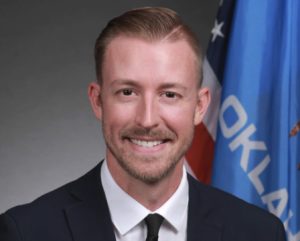Oklahoma lawmaker says DEI is destroying higher education
(The Center Square) – Oklahoma’s universities spend millions on diversity, equity, and inclusion requirements, and one lawmaker said he wants to do something about it.
Sen. Rob Standridge,…

(The Center Square) – Oklahoma’s universities spend millions on diversity, equity, and inclusion requirements, and one lawmaker said he wants to do something about it.
Sen. Rob Standridge, R-Norman, called for a study on DEI at the state’s universities during a recent meeting of the Senate Education Committee.
“I think it’s really destroying our higher ed institutions and it’s really hurting both our faculty and our students and I’ve had many, many parents and faculty, both family and friends, who have complained to me about this for quite a few years,” Standridge said.
At Oklahoma State University, all new students must complete a diversity course, according to Matt Beienburg, director of education policy at the Goldwater Institute. Job applicants seeking to join the faculty at various institutions are required to submit a “diversity statement” along with their resume and cover letter, he said.
“The rubrics that are then used to judge these have explicitly penalized applicants who say things like, ‘well, I treat all students the same regardless of race.’ That is deemed to be a misunderstanding and an unsatisfactory understanding of DEI,” Beienburg said.
Many universities also use “bias reporting systems.” At Oklahoma State University, people can report someone for a comment they made in class, a post on social media, or for using someone’s incorrect pronouns, Beienburg told the committee.
The programs cost millions, the panelist told the committee.
“By their own admission they’ve spent approximately $84 million in the last decade on DEI,” said Jonathan Small, president of the Oklahoma Council of Public Affairs, a public policy research organization.
Small said he would “put higher ed back to where it was two years ago.”
“They all essentially kind of gave you all the impression that if you gave them about $100 million a year that, particularly our flagship university, wasn’t going to raise tuition. I would just take all that back and start this Workforce Needs Scholarship Program,” Small said. “That’s $100 million that could be pro-rated across the number of students who are interested in the various fields.”
Small also suggested reducing the budget for higher education institutions to curb DEI spending and raising standards for professors.
“At OSU, approximately 20% of the professors are doing nearly 50% of the teaching. And so if you just require professors to become more efficient, like the top 20% at OSU, you’re talking about saving students and taxpayers $80 million a year,” said Small.



